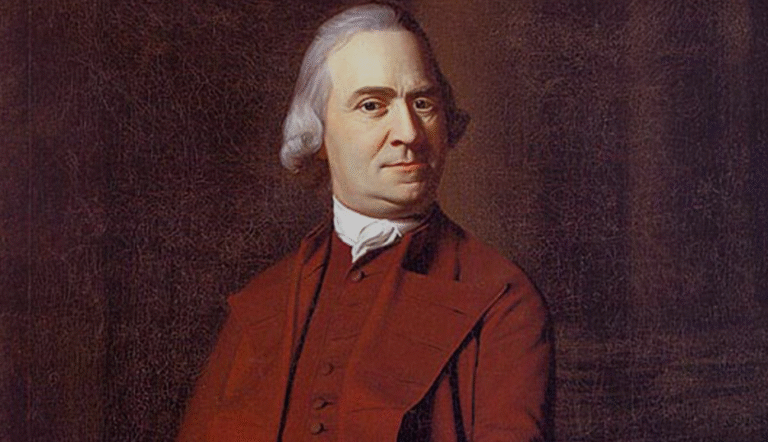Table of Content:
- Introduction & Key Takeaways
- Early Life & Legal Career
- Appointment & Ascent to Chief Justice
- Signature Cases & Legal Legacy
- Writing Style: The “Bowmanesque” Clarity
- Retirement & Contribution: National Tax Moot
- Timeline of Major Milestones (visual aided)
- Why Bowman Still Matters Today
- Summary & Final Reflection
Key Takeaways:
- Donald Bowman served as Chief Justice of the Tax Court of Canada from 2005–2008.
- He co-founded the Toronto firm Stikeman, Elliott, Robarts & Bowman before government service.
- Renowned for his writing, described as “Bowmanesque readability” in tax law.
- The Donald Bowman National Tax Moot honors his legacy and prepares future lawyers.
- His hallmark cases continue to influence how courts interpret complex tax principles.
2. Early Life & Legal Career
Born in 1933, Bowman was called to the Ontario Bar in 1962. He helped found the Toronto law firm Stikeman, Elliott, Robarts & Bowman in 1971, gaining a reputation in tax litigation. In 1974, he was appointed Queen’s Counsel.
3. Appointment & Ascent to Chief Justice
Donald Bowman joined the Federal Department of Justice’s Tax Litigation Section in 1962 and became its Director in 1968. He was appointed to the Tax Court in 1991, elevated to Associate Chief Justice in 2000, then Chief Justice in 2005 until retiring in 2008.
4. Signature Cases & Legal Legacy
Bowman’s judgments, often penned longhand with a fountain pen, stand out for their analytical depth and clarity. One famously quoted German line: “Against stupidity, the gods themselves battle in vain”—originally from Schiller—enriching the legal context of a tax decision.
He is frequently referred to as the Lord Denning of the Canadian Tax Court for his plain‑spoken, practical reasoning. Wikipedia

5. Writing Style: The “Bowmanesque” Clarity
Bowman’s style is celebrated for transforming dense tax law into surprising accessibility. Judges and lawyers still reference his decisions not only for their legal weight, but for the artistry of exposition. His prose elevated the profession’s standards in judicial writing.
6. Retirement & Contribution: National Tax Moot
After retirement, Bowman resumed private practice but also inspired the Donald G. H. Bowman National Tax Moot, launched in 2011. This competition challenges law students nationally and fosters excellence in tax advocacy—a testament to his influence. Wikipedia
7. Timeline of Major Milestones
Donald Bowman’s distinguished legal career spans several decades, marked by notable achievements and leadership roles. After earning his law degree and being called to the Bar, he quickly established himself as a leading tax lawyer.
In 1991, he was appointed to the Tax Court of Canada, where his deep knowledge and clarity in reasoning set him apart. He became Associate Chief Justice in 2000 and was named Chief Justice in 2005.
Throughout his tenure, Bowman issued influential rulings that shaped Canadian tax law. He retired in 2008, leaving behind a legacy of legal excellence, sharp wit, and a profound impact on judicial writing in Canada.
8. Why Bowman Still Matters Today
Bowman’s jurisprudence remains frequently cited in Canadian tax law. His clarity in judgment—blending wit, precision, and legal insight—continues to inspire legal practitioners and academics.
He is emblematic of how judicial writing can elevate accessibility and trust in complex legal systems.
9. Summary & Final Reflection
Donald G. H. Bowman’s legacy extends far beyond his tenure as Chief Justice of the Tax Court of Canada. Renowned for his sharp intellect and unmatched clarity, he transformed Canadian tax law through judgments that were as principled as they were accessible. His writing style—clear, concise, and often laced with wit—helped demystify complex legal concepts and brought a sense of humanity to a technical field. Bowman believed that the law should serve fairness above all, and he never hesitated to challenge ambiguity or inconsistency in legislation or precedent.
Even after his retirement, Bowman’s influence continues to shape the legal landscape. His legacy lives on through the annual Bowman Moot, a prestigious tax advocacy competition that trains future generations of legal minds in the values he championed—clarity, analytical precision, and ethical reasoning. By setting a gold standard for legal writing and interpretation, Donald Bowman remains a guiding figure in Canadian jurisprudence and an enduring inspiration to lawyers and judges alike.





[…] Billy Wayne Smith is widely known as the teenage husband of Anna Nicole Smith and father of their son, Daniel. Yet his life story stretches beyond tabloid headlines. This profile explores his early life, brief marriage, family tragedy, public exposure, and eventual withdrawal from the limelight. […]
[…] Leadership roles: Rising through ranks in his field, Bowman consistently demonstrated a talent for turning challenges into opportunities. […]